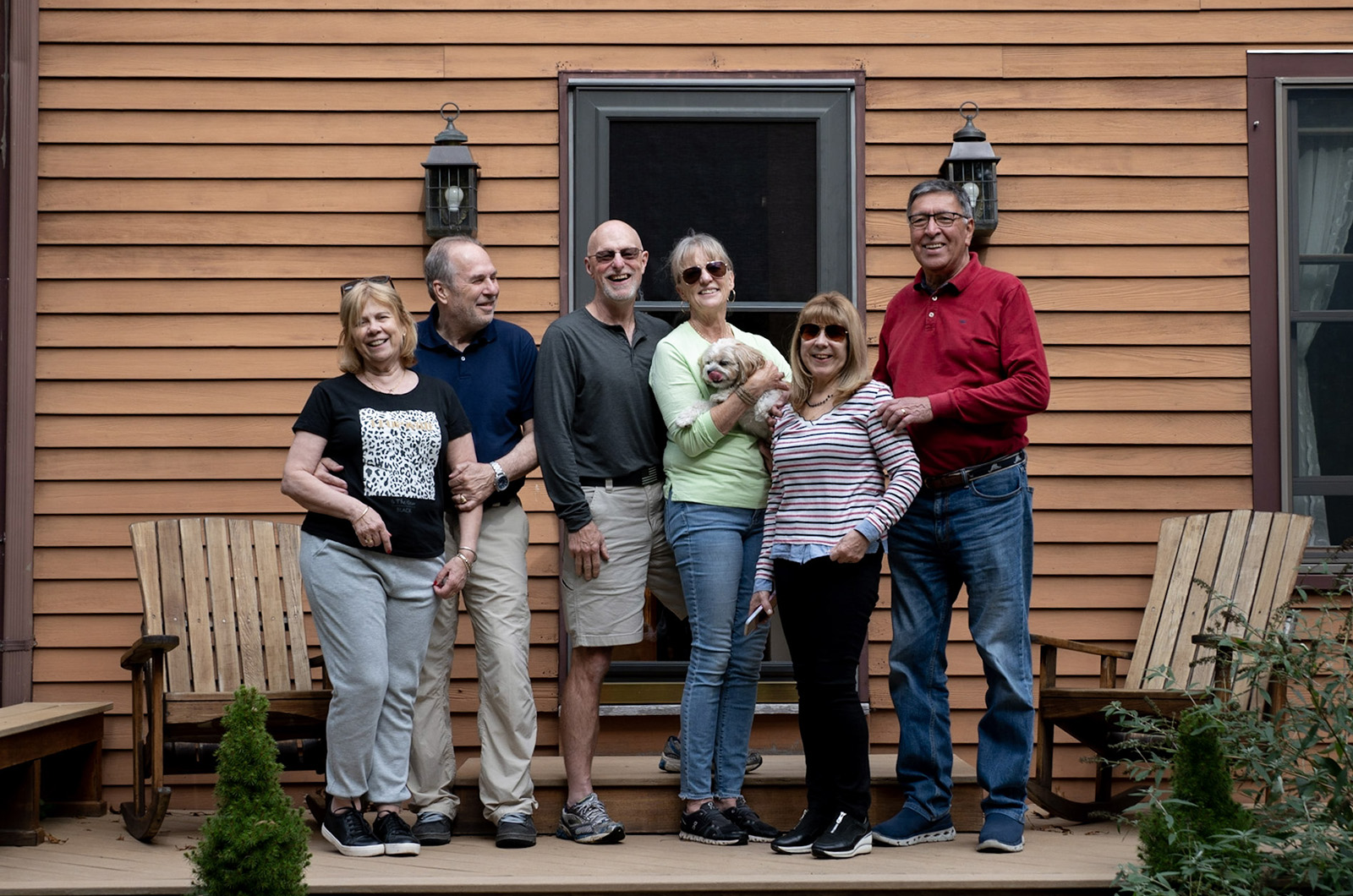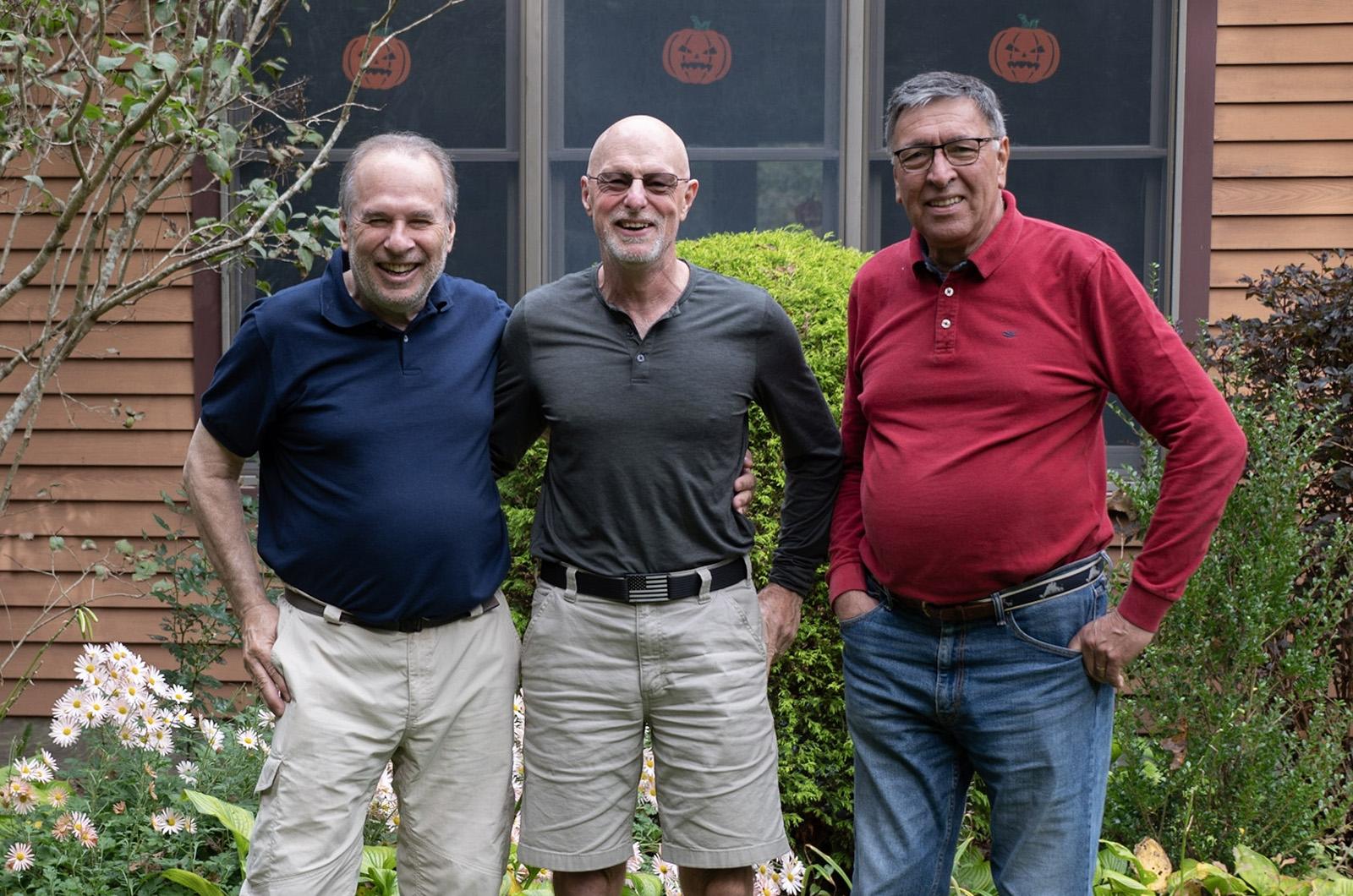On an August evening in 1972, 17-year-old Chilean exchange student Claudio Mac-Lean sat in a Falmouth hotel room with his new Vineyard host family. It was the first night of his year abroad and he looked at the family, wondering what was happening. They didn’t speak Spanish and couldn’t tell him the boats to the Vineyard had been canceled.
Mr. Mac-Lean’s gaze fixated on his host brother, John Schilling, who stared back just as curiously.
On Monday, more than 50 years later, the two men sat together again, this time in Mr. Schilling’s Vineyard Haven home, reminiscing about that night. Though neither knew it then, it was the beginning of a friendship that would span decades and hemispheres.
“Back then, I couldn’t speak to him, he couldn’t speak to me, and I just remember him looking at me like, what is this room? Where are we?” said Mr. Schilling, former Tisbury fire chief. “But over time, it all became so much more than a simple exchange. It’s so easy to call him my brother.”

Mr. Mac-Lean and his wife, Jacqueline, arrived on the Vineyard last week for a six-day visit to attend the 50th reunion of the Martha’s Vineyard Regional High School class of 1973. There, he embraced not only Mr. Schilling, but also Daniel Poletto, who attended the regional high school that same year on an Argentinian exchange and also traveled to the Island last week with his wife, Maria.
“It seemed like a mistake that they would send two Spanish-speaking people from neighboring countries to the same small American community,” said Mr. Poletto. “But thank god. It was a beautiful mistake. It came to be such a special friendship.”
Both Mr. Mac-Lean and Mr. Poletto studied in the U.S. under the American Field Service Intercultural Program. Applicants could be sent anywhere in the country, said Mr. Poletto, and the two of them happened to be placed with families living in Vineyard Haven, just five blocks from each other.
When school began, they marveled at the peculiarities of their new American lifestyles and bonded over their cultural and linguistic similarities.
“Everything was so strange at the beginning,” said Mr. Poletto. “[In Argentina], we were not allowed to go with long hair to school. We had a white uniform and short hair. We had a military government. So imagine what it’s like when I walk into class here and see a teacher with a ponytail.”
“There was also a big difference in technology and facilities,” added Mr. Mac-Lean. “At that time in Chile, 40 per cent of the population had no water inside their houses.... But of course here, everyone had it.”
It was difficult for the new friends to connect with their classmates and at first they spent time with mostly each other.
Communication with their families in South America was limited, too, said Mr. Mac-Lean. In Chile, not long after Mr. Mac-Lean left for the Vineyard, a military coup led by Augusto Pinochet began brewing, which eventually toppled the civilian government of Salvador Allende. Mr. Mac-Lean’s only contact from home came from two-week-old letters and newspaper clippings.
The Vineyard felt isolating, and at times the two were overcome with homesickness.
Then, the high school started a soccer team.
“It was literally that year that the phys ed teacher thought it was time to introduce soccer at the high school,” said Mr. Schilling. “He invited students in all the grades who were interested to learn and play it. None of us really knew what we were doing.”
But Mr. Mac-Lean and Mr. Poletto played often in their home countries, and teaching the Vineyard students helped them connect socially.
“It was a way to get in touch with people,” said Mr. Poletto. “You don’t need to talk that much. You talk through the ball, and after the game it feels like you’ve been talking a lot with somebody and you know them well. You became a team.”
By the end of the year, Mr. Poletto, Mr. Mac-Lean and Mr. Schilling were as close as brothers, they said. And today, though separated by countries and continents, they remain each others’ chosen family.
“I remember that day we left Martha’s Vineyard I thought it was the last time I was going to see this Island,” said Mr. Poletto. “I had a middle-class family, and to think that I’d have a chance to come back was just more than a dream. I thought that I’d never see my [host] mom and the rest of these people here ever again.”
Mr. Poletto’s dream to return to the Vineyard became reality just four years later after cashing in his savings for plane tickets. Mr. Mac-Lean made his first trip back in 1985, and since then, both men have returned for numerous class reunions.
The three friends and their families have also reunited countless times around the world. Mr. Schilling said he is already eagerly planning a trip to Argentina to visit Mr. Poletto.
The exchange may never end, Mr. Schilling said, laughing.
“We may be on opposite ends of the world and speak different languages, but we continue to laugh and joke and have the same life experiences,” he continued. “We sit here now together as parents and grandparents, laughing and joking as if nothing’s changed.”







Comments (3)
Comments
Comment policy »